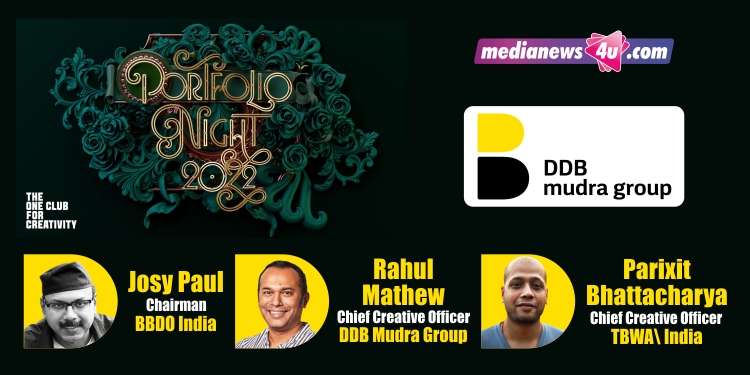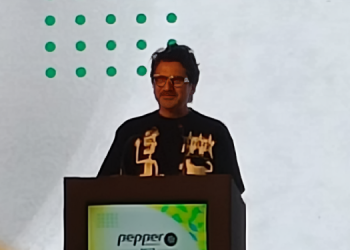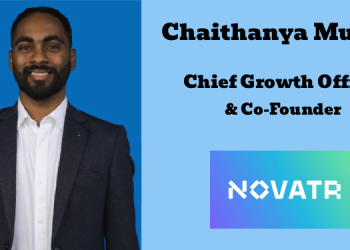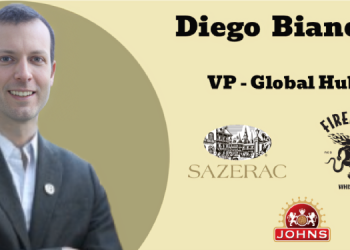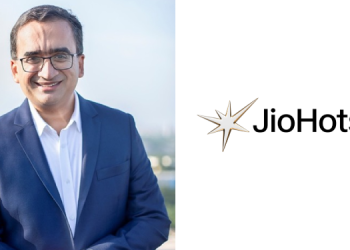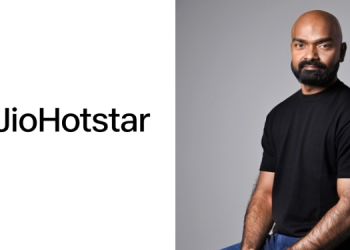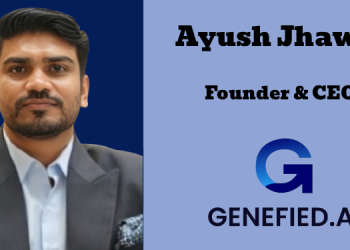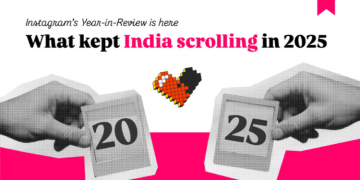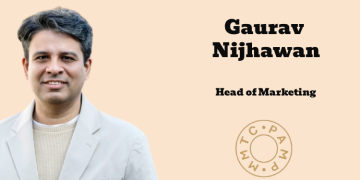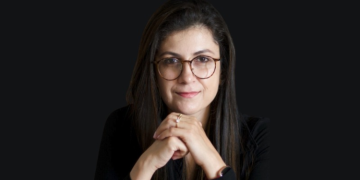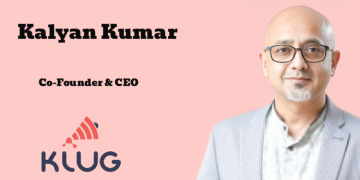The One Club for Creativity’s Portfolio Night 2022 was hosted on 2nd June at Mudra House in Mumbai by three agencies that are part of the Omnicom Group: DDB Mudra Group, BBDO India and TBWA\India.
We spoke with Josy Paul, Chairman, BBDO India; Rahul Mathew, Chief Creative Officer, DDB Mudra Group; and Parixit Bhattacharya, Chief Creative Officer, TBWA\India, who were among jurors meeting and screening the work of 55 selected aspirants, to find out more about the quality of work, what they saw in the youngsters and their own pandemic paths.
Comment on the use of creativity and expression in 2022 as compared to (Portfolio Night) 2018/2019 (or earlier that you judged)?
Josy Paul: I think the kind of work they showed felt more contemporary. The people who stood out seemed to be capturing the time in which we live now and I thought it was interesting. It was coming from a very powerful context of ‘now’. If you looked at the work in 2018/2019 and this, it felt like this must be now.
Rahul Mathew: In 2018 & 2019 people came with work which didn’t excite me at all. But this year they came with ideas which were trying to solve problems they faced during the pandemic. The emotions they felt at that time were etched in their words, videos and one of the girls had turned her emotions into a song. I think this is happening because everybody had lost the stimulus and the world was going forward but at a (slow and) steady pace. Then there was this spike and I could see it in some of them. This has influenced how they use their creativity and expression.
Parixit Bhattacharya: Three of the nine kids I was judging this year asked what I wanted to see, ‘work’ or ‘personal’. I obviously opted for the personal stuff which was amazing and fresh, that is the way it should be. There is a thing in their consciousness, that ‘I am a creative person’ and they are also expressing themselves outside of what they may define as work.
The second is probably the fallout of the first. I saw kids who had their own brands; they were legit content creators on multiple social platforms. When I probed a little further, a couple of them said they actually wanted to learn the trade of making a brand and then create their own brand. I have never come across this on a Portfolio night earlier.
What do you see in the youngsters of today? What is their level of openness and what are their strengths?
Bhattacharya: I don’t think that the nine kids I met had a strong, clear idea of what they wanted to do which was very refreshing. But they were very knowledgeable and articulate in terms of what this idea is doing; and at an atomic level of the profession being creative knowing exactly how and why this idea will work — that they knew. But on the life level they are not really sure what they want to do; they are young.
Paul: Most of the kids I reviewed were open to and were seeking some sort of direction and some form of mentorship. I am seeing this theme not just at the Portfolio Night but across colleges. This need for mentorship is growing. I think because there are so many opportunities and so many people saying so many things, they are not able to process it alone. S/he needs a guiding hand and that was the need here at Portfolio Night also. Of course there were people who were sure, and knew what they were doing. The dominant feeling was, ‘Just guide me through’.
Mathew: I saw this in some of the stronger candidates — their ability to hear everything. You could sense that (they understand and ask) ‘Is this something I need to take on as a comment, is it adding to me?’ I saw this processing happening. They are open to a lot of comments today because I think it is the training from the social media or because they go through it a lot. The ability in today’s kids to take the comments, process, think about it, recalibrate, do something else, I think this generation has it. I feel that they can be much stronger creative people than we are.
How has the lockdown and the pandemic been for you as a creative person?
Paul: This is a huge question; I walked about 2500 Kms with this guy called Bob Dylon. Every day I did about 6 kms listening only to a guy who I had forgotten about. In college I heard about three songs and then I discovered that there are 600 songs (of his). So I just kept listening to his music and walking and I know every little cobble stone in Bandra. That for me was a very powerful experience and I wrote a note to myself saying, ‘The only way to manage the Covid blues or the pandemic blues or the lockdown blues is with your inner rock and roll’.
Bhattacharya: What do I say after what Josy has said? There is a famous line in Fight Club: ‘We have no great war (in our lives)’. In the last two years we witnessed the first war of our life. For me it was the time to redeem, reflect and find more resilience. I found that nothing really changed for me, which was amazing. All change was already happening inside you and it is a far greater state of flux than any war that can happen outside. I got reintroduced to that and I found my centre. Creatively that helped me stay in the moment more therefore deliver more in the moment and I am trying to stretch it as far as I can.
Mathew: During this lockdown I lost all my muscles and I also lost all my muscle memory. So in life I was forced to think of new muscles in my head. For me that is the best thing that has happened to me. All those things that you thought were not possible as I am learning it is. In the first six months of the lockdown we did some of the best work in the agency. It just taught us to be more resilient. It also taught us the power of a creative thought or idea or force which is far larger than anything in this world.

